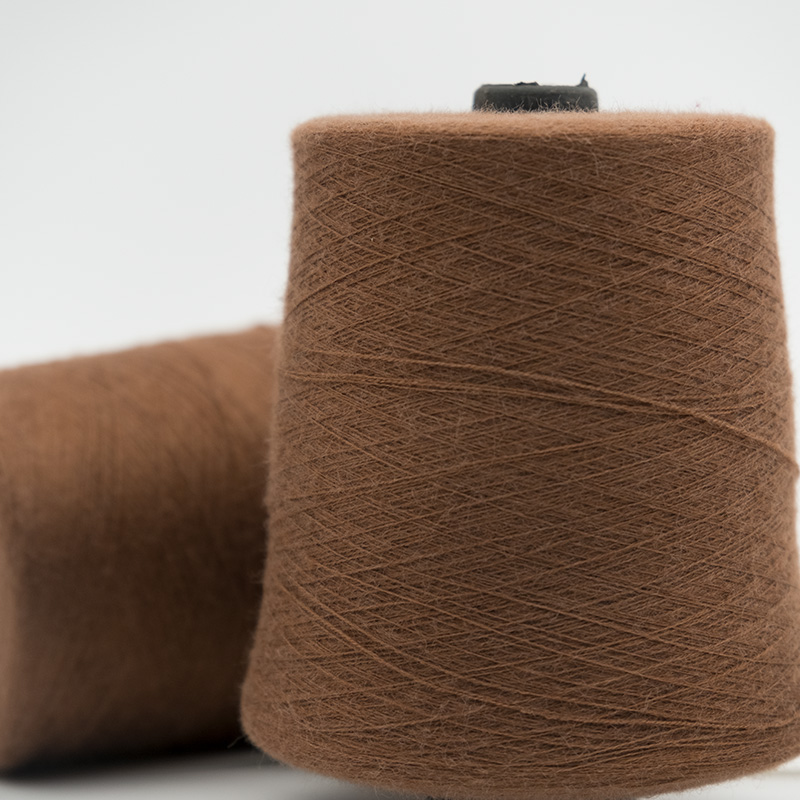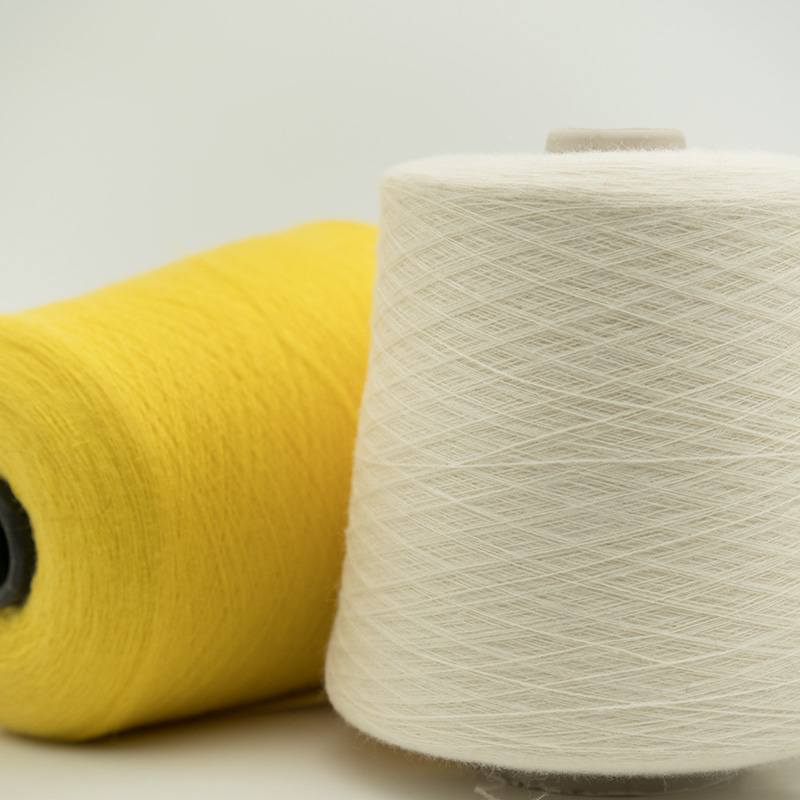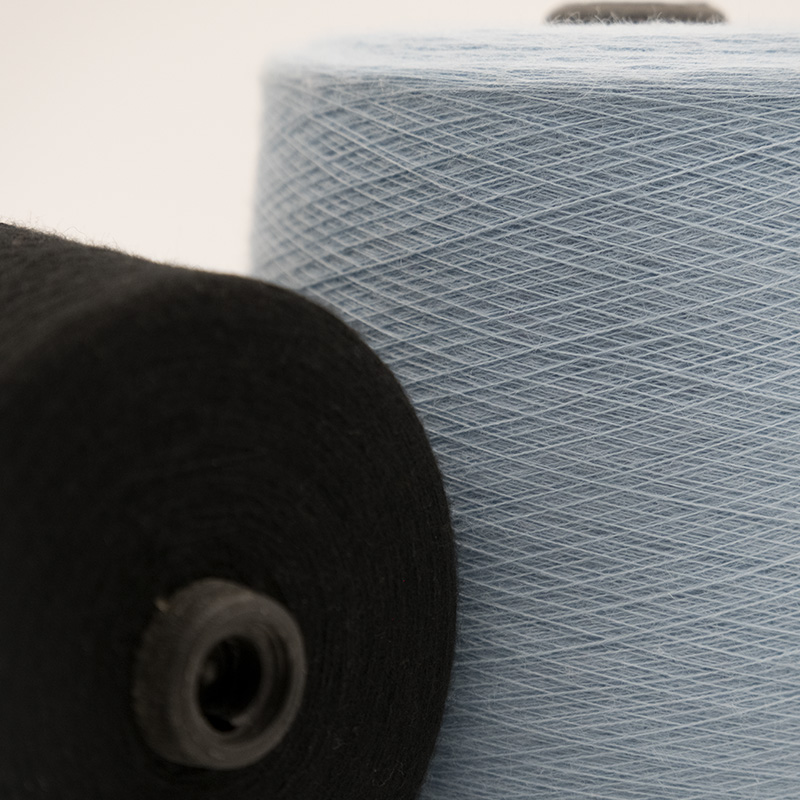regenerated recycled Eco-Friendly yarn Manufacturers
Eco-friendly core yarns use core yarns that contain environmentally friendly raw material components. Eco-friendly core yarns are usually made from renewable, biodegradable or recycled raw materials. These raw materials may include organic cotton, recycled polyester fibres, bamboo fibres, and so on. These materials have a lower environmental impact than traditional textile raw materials and can be produced in a way that saves resources and energy. The Eco Series core yarns may incorporate a range of innovative technologies to improve the quality and performance of the yarn. For example, advanced spinning techniques can make the yarn softer and more abrasion-resistant, while maintaining its environmentally friendly properties.
About Us
The main business of Wanteng is to produce and operate all kinds of artificial cotton yarn. The company has 60,000 spindles, with an annual output of 11,000 tons of yarn. Our products are designated as special yarns by famous enterprises in Jiangsu, Zhejiang and Guangdong.
News
-
Industry News 2026-01-23
Why crochet cannot be done by machine (clear answer first) Modern textile machines cannot fully replicate hand crochet ...
View More -
Industry News 2026-01-16
Spinning wheels are used to turn loose fibers—like wool, flax, cotton, and silk—into continuous yarn by drafting (pullin...
View More -
Industry News 2026-01-09
What mercerized cotton thread is Mercerized cotton thread is cotton thread that has been chemically treated (typically ...
View More -
Industry News 2026-01-04
What Viscose Core Spun Yarn Is and Why Structure Drives Results Viscose core spun yarn is a composite yarn engineered w...
View More -
Industry News 2025-12-26
What does polyester do to your skin? Key takeaways Polyester is a durable, quick-drying synthetic fiber. On skin, it mo...
View More
Environmentally friendly series core spun yarn KNOWLEDGE
How does the quality of the eco-friendly core spun yarn compare to traditional yarn?
Fiber Characteristics:Eco-friendly core spun yarn may use natural fibers like organic cotton or bamboo, as well as recycled synthetic fibers like polyester. These fibers often retain similar or even superior qualities compared to their conventional counterparts in terms of softness, strength, and comfort.
Durability and Strength:Eco-friendly core spun yarn can offer comparable durability and strength to traditional yarn, especially when advanced spinning techniques are employed to enhance these properties. However, certain natural fibers may have different characteristics in terms of tensile strength and abrasion resistance compared to synthetic fibers commonly used in traditional yarn.
Performance Properties:Eco-friendly core spun yarn may exhibit similar performance properties such as moisture-wicking, breathability, and thermal regulation as traditional yarn, particularly when blended with suitable fibers. Innovations in spinning techniques can further improve these properties while maintaining the yarn's eco-friendly credentials.
Colorfastness and Appearance:The colorfastness and appearance of eco-friendly core spun yarn can be comparable to traditional yarn, especially when high-quality dyes and finishes are utilized. However, natural fibers may have different dye uptake characteristics compared to synthetic fibers, which can result in subtle differences in color vibrancy and hue.
Environmental Impact:One significant difference between eco-friendly core spun yarn and traditional yarn is their environmental impact. Eco-friendly yarns typically have a lower environmental footprint due to the use of renewable, biodegradable, or recycled raw materials, as well as environmentally conscious manufacturing processes. This aspect can enhance the perceived quality of eco-friendly yarn for consumers who prioritize sustainability.
What are the primary environmentally friendly raw materials used in the core spun yarn?
The primary environmentally friendly raw materials used in core spun yarns are sourced from renewable, biodegradable, or recycled sources. Here are some of the most commonly used environmentally friendly raw materials:
Organic Cotton:Organic cotton is grown without the use of synthetic pesticides, fertilizers, or genetically modified organisms (GMOs). It is cultivated using sustainable farming practices that promote soil health and biodiversity. Organic cotton fibers are biodegradable and have a lower environmental impact compared to conventional cotton.
Recycled Polyester Fibers:Recycled polyester fibers are derived from post-consumer PET bottles or industrial polyester waste. These fibers are processed and spun into yarn, offering similar performance characteristics to virgin polyester while reducing the need for virgin petroleum-based resources and diverting waste from landfills.
Bamboo Fibers:Bamboo fibers are made from the pulp of bamboo plants, which are fast-growing and require minimal water, pesticides, or fertilizers to cultivate. Bamboo fibers are biodegradable and have natural antimicrobial properties, making them suitable for a range of textile applications. However, the processing of bamboo fibers into Eco-friendly core spun yarn may involve chemical treatments, so eco-friendly certifications are important to ensure sustainability.
Hemp Fibers:Hemp fibers are derived from the hemp plant, which is grown for its versatile fibers and seeds. Hemp cultivation requires minimal water and pesticides, and the plant is naturally resistant to pests and diseases. Hemp fibers are strong, durable, and biodegradable, making them suitable for various textile applications.
Recycled Cotton:Recycled cotton is made from post-industrial or post-consumer cotton waste, such as textile scraps or discarded garments. The waste cotton is collected, sorted, and processed into fibers, which are then spun into yarn. Recycling cotton reduces the need for virgin cotton cultivation and minimizes waste in the textile industry.
Tencel (Lyocell):Tencel, also known as Lyocell, is a fiber made from wood pulp sourced from sustainably managed forests. The production process involves a closed-loop system that recycles solvents and minimizes environmental impact. Tencel fibers are biodegradable and known for their softness, breathability, and moisture-wicking properties.



 English
English русский
русский Español
Español 中文简体
中文简体









